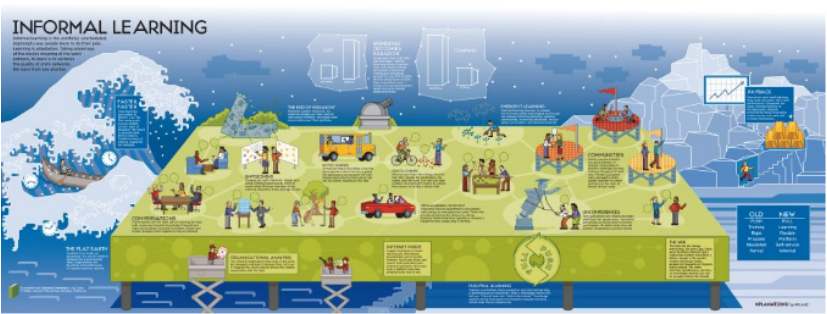Learning about learning
|
I'm a rebel. There. I've said it. I admit it. And it gets me into all kinds of trouble trying to fit into Corporate America. Tracy Goodwin (aka The Red Sweater Lady) of Captivate the Room asked to interview me and titled the conversation When Speaking Your Truth Becomes a Threat and More. Yes, indeed, I have stories. How about this? Me: There is a major problem here and we need to fix it. We could....
0 Comments
names and prioritiesOver the years, we have watched the names change for those of us who deal with people in the business world. In the 60s it was Personnel, and the function was primarily administrative. Then in the 80s it was Human Resources, and we managed human capital with better alignment to the business. Today it's Talent Management. Whatever we call ourselves, we're focused on the people side of the business, allowing the business to focus on the business operations and growth. In the arena I work in, we've been training, learning & development, something or other university, and lately, Talent Development. We're about teaching people to do their jobs and improve their skill sets. Most of the time, we fall under the umbrella of Talent Management, though sometimes we report to operational lines of business. I was at the ASTD conference in 2014 where the American Society for Training and Development changed its name to ATD, the Association for Talent Development. It was a pretty slick transformation as the reveal occurred overnight and all the branding throughout the enormous conference center changed from the old to the new, supported by a giant announcement meeting pep rally type forum. I would expect people who teach about change management do it well. I initially resisted the name change, but I'm growing to like it, since it better reflects what we are trying to do for people. We are learning that training may not be the best way to develop skills. We've also seen that some of the training we've created has been pretty useless. Dan Pontefract makes a great point in his article Talent Development Isn't Just About Training: Talent is developed inside and outside of ‘training and development’. It comes in the form of coaching, mentoring, job shadowing, wiki’s, blogs, rotations, lectures, books, articles, job aids, leadership models … the list literally goes on and on. -Don Pontefract 70:20:10 Rule
Learning ConciergeFor the people in the learning world, things have changed. People have been sharing these models for almost 20 years. It's time to start implementing them. We need to function like a concierge for much of what we do. We need to be equipping learners to find the resources that they need to support them to do their jobs. We may be creating classroom experiences, but it is no longer the primary vehicle for learning. We need to be listening for needs, rooting out problems and offering solutions. If we are going to be developing talent, we need to examine what needs developing and provide ways to develop skills. We want learners to see their learning partners as allies and resources. For some of us, that means a paradigm shift to adapt to the needs of the 21st century workforce. After all, we're no longer personnel paperwork administrators. References
|
Jean Marrapodi
Teacher by training, learner by design. Archives
January 2018
Categories
All
|
Conference
|
Company
|
|



 RSS Feed
RSS Feed